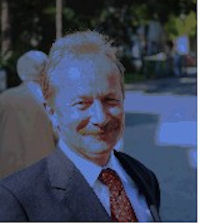 |
STAGES PER STUDENTI DI SCUOLA SECONDARIA STAGES INVERNALI 2009 |
 |
 |
JOHANN MARTON
|
My name is Johann Marton. I was born in a small village of Upper Austria. I attended the Gynasium which I finished with the Matura with honors. I finished the study "Technische Physik" after 6 years wih the diploma (graduate engineer) and started my PhD work afterwards. After 3 years and I finished the thesis related to surface physics (in this period I had also to complete my military service). Then I joined a research group of the Austrian Academy of Sciences which was working on exotic atom studies at Paul Scherrer Institute (PSI) in Switzerland. At that time muonic atoms and molecules were the central point of our studies. Actually the results on muon catalyzed fusion gained much attention in the international scientific community and many publications ant talks followed. In 1987 I became Deputy Director of the Institute for Medium Energy Physics of the Austrian Academy of Sciences in Vienna which got a new name "Stefan Meyer Institute for Subatomic Physics" in 2004. I finished my habilitation ("venia docendi") at the University of Technology in 2007. The field of exotic atoms was the starting point and it is still the center of my research interests but after PSI other facilities are used now (DAFNE/LNF, AD/CERN, ...). Q: How and why did you decide to study physics and which is the best memory of your life as a student? I had an excellent teacher in chemistry in the Gymnasium. Therefore after the Matura I wanted to study chemistry at the University of Technology in Vienna - but I changed to physics before starting my study. The reason was that I had the impression that chemistry is to a large extent related to applications and I wanted to learn more about nature in a deeper and broader view. The time boundaries represent a major difficulty. As scientist one has to concentrate the efforts to research but one has also to focus and that results in the difficulty to decide in which direction to go in spite of the fact that there are many interesting topics around - especially in physics. There were some exiting periods: firstly the experiments on muon-catalyzed fusion at PSI in which we could directly observe the fusion processes by neutron detection. It was also exciting because of the challenge with physicists from US working also in this field at Los Alamos. Secondly the DEAR experiment at LNFrascati was very exciting where we succeeded to get the most precise values of the strong interaction observables of kaonic hydrogen finally. At present I am working within the SIDDHARTA project on x-ray spectroscopy of kaonic atoms. This fascinating research project aims at the study of the low-energy antikaon-nucleon interaction which might have the potential to produce a new form of matter with strangeness bound by strong interaction. Some other projects are in a preparatory state like projects with antiprotons at FAIR/Germany and kaons at J-PARC/Japan. As many people I am aware of the fact that the current understanding of nature is incomplete in the sense that the microscopic picture cannot explain findings in astrophysics like dark matter or dark energy. I hope there might be the chance to either have new explanations or results from new high precision experiments. Regarding experiments at LHC: I hope the search for the Higgs particle will be successful but might needs longer time than anticipated. A major impact to the picture of modern physics would be the discovery of super-symmetric particles. I think the following definition in principle holds true: "A person with advanced knowledge of one or more sciences" Research is important for the future in many ways, e.g. application of new technologies in medicine. Therefore I hope that politicians realize that an investment in research is also an investment in future. Even in economically difficult times one should not save money in the wrong field. |